My Patient Needs Help
Recognizing the signs of a gambling addiction and knowing the appropriate approach is a crucial first step toward helping individuals who may be struggling with a gambling problem. Our goal at The Gambling Clinic® is to guide people toward a path of recovery, providing them with resources and tools necessary to achieve mental and emotional wellness. Let us help you help your patient.
How Much Does It Cost?
We have a sliding fee scale and will never turn a patient away based on their ability to pay. The issue of cost is never a barrier to working with us.
Our full cost is a one-time charge of $300 for as many sessions as your patient needs to meet their goals. We can work with any financial situation by offering payment plans, reduced fees, and even waived fees.
Why Your Patient May Need Help with Gambling Problems
Research has shown that gambling problems cause psychological and physical harm to the individual. Increases in depression and anxiety, as well as experiencing physical stressors, are common. Furthermore, those with gambling problems are significantly more likely to attempt and complete suicides than those with a different addiction problem.
Help your patient with a gambling problem by referring them to gambling-specific treatment. Addressing their gambling problems may increase the success of therapy treatments for their depression, anxiety, and stress.
Healthcare Providers’ Guide to Problem Gambling

Healthcare providers, such as family physicians, are often a stable and trusted form of support for patients. Accordingly, healthcare providers might be the first to know when a patient has concerns about their gambling. Awareness of the risk factors for and symptoms of gambling disorder can help healthcare providers identify patients who are at risk for negative health outcomes due to their gambling.
Risk Factors
Risk factors associated with a higher possibility of a gambling problem are biological, psychological, family, community, or cultural aspects. These risk factors include:
- Other mental health concerns, such as substance use problems, depression, and anxiety often precede or also occur.
- Young adults are at higher risk.
- Gambling disorder is more common among men.
- Family history of gambling disorder.
- Some medications lead to an increase in gambling.
- Gambling among those with lower income experience more significant financial distress.
- Impulsivity, including a history of high-risk behaviors.
What if My Patient Has Risk Factors for Gambling Disorder?
If your patient has risk factors for gambling disorder, it might be helpful to ask neutral, open-ended questions to gain insight into their concerns and invite dialogue. That could sound like:
- “Some of my patients have problems with spending too much time or money gambling. Is that something you have experienced?”
- “How does gambling fit into your life?”
- “Tell me about your gambling.”
Gambling Disorder Signs and Symptoms
Through conversation, it might become apparent that the patient does have concerns about their gambling. Signs and symptoms to listen for include:
- Spending excessive amounts of time or money on gambling
- Impairment in relationships or occupation because of gambling
- Gambling to make up for money they lost from previous gambling episodes (“known as chasing losses”)
- Unsuccessful attempts at reducing gambling
Formal Assessment of Gambling Disorder Symptoms
It can also be helpful to give a formal assessment of gambling disorder symptoms, such as The
Memphis Gambling Scale (MGS). If the patient disclosed signs of gambling disorder or endorses symptoms on the MGS, it can be useful to communicate this finding with the patient. This conversation could follow the following pattern:
- Ask permission. (“Is it okay with you if I share some concerns I have about your gambling?”)
- Using non-stigmatizing language, express concern. (“Based on what you’re telling me and the screener you filled out, it seems like you’re having trouble cutting down on gambling and your marriage is suffering as a result.”)
- Normalize. (“You’re not alone. A lot of people experience problems with managing their gambling.”)
- Ask if they are interested in receiving support and deliver referral information if desired. (“There are people trained to help patients overcome issues with gambling. Would you like me to tell you more about someone who might be able to help?”)
The patient might not view their gambling as a problem or be ready to change their gambling, which is okay! The important thing is that the patient knows they can turn to their healthcare provider in the future if and when they are ready to discuss their gambling.
Understanding Your Patient
Several factors can contribute to a patient’s reluctance to talk about gambling problems, including:
- Shame and Embarrassment: Many patients feel a deep sense of shame or embarrassment about their gambling habits.
- Lack of Hope: After multiple unsuccessful attempts to change, some patients may feel hopeless about their ability to overcome gambling issues.
- Fear of Judgment: The fear of being judged by others, including healthcare providers, can prevent patients from opening up about their gambling.
- Unawareness of the Issue: Some patients may not recognize gambling as the main issue affecting their lives.
- Readiness to Tackle the Problem: Even if they recognize the problems caused by gambling, they may not feel able or ready to address the issue.
Understanding these factors can help healthcare providers approach the topic with sensitivity and patience, ensuring that patients feel supported and understood.
How Should I Screen My Patient for a Gambling Disorder?
You may have recognized certain risk factors, discussed concerns your patient has with gambling behaviors, and identified gambling disorder symptoms. In that case, you may want to further evaluate your patient to know if a diagnosis of disordered gambling is warranted.
To know if your patient may need additional help with their gambling problem, please see the document for health care provider screening.
Referring Your Patient
Taking the first step can often be the most difficult, so you might consider offering to make the phone call together with your patient to provide support.
If your patient continues to need assistance with other issues through your service, it’s crucial to follow up on the referral to stay informed about the support or treatment they might receive.
Even if your patient chooses not to pursue a referral to help control their gambling, you can still contact us at The Gambling Clinic® for guidance on what to do next. Understanding the different stages of change can also be beneficial in determining where your patient might be in their journey.
My Patient Needs Help
Recognizing the signs of a gambling addiction and knowing the appropriate approach is a crucial first step toward helping individuals who may be struggling with a gambling problem. Our goal at The Gambling Clinic® is to guide people toward a path of recovery, providing them with resources and tools necessary to achieve mental and emotional wellness. Let us help you help your patient.
How Much Does It Cost?
We have a sliding fee scale and will never turn a patient away based on their ability to pay. The issue of cost is never a barrier to working with us.
Our full cost is a one-time charge of $300 for as many sessions as your patient needs to meet their goals. We can work with any financial situation by offering payment plans, reduced fees, and even waived fees.
Why Your Patient May Need Help with Gambling Problems
Research has shown that gambling problems cause psychological and physical harm to the individual. Increases in depression and anxiety, as well as experiencing physical stressors, are common. Furthermore, those with gambling problems are significantly more likely to attempt and complete suicides than those with a different addiction problem.
Help your patient with a gambling problem by referring them to gambling-specific treatment. Addressing their gambling problems may increase the success of therapy treatments for their depression, anxiety, and stress.
Healthcare Providers’ Guide to Problem Gambling

Healthcare providers, such as family physicians, are often a stable and trusted form of support for patients. Accordingly, healthcare providers might be the first to know when a patient has concerns about their gambling. Awareness of the risk factors for and symptoms of gambling disorder can help healthcare providers identify patients who are at risk for negative health outcomes due to their gambling.
Risk Factors
Risk factors associated with a higher possibility of a gambling problem are biological, psychological, family, community, or cultural aspects. These risk factors include:
- Other mental health concerns, such as substance use problems, depression, and anxiety often precede or also occur.
- Young adults are at higher risk.
- Gambling disorder is more common among men.
- Family history of gambling disorder.
- Some medications lead to an increase in gambling.
- Gambling among those with lower income experience more significant financial distress.
- Impulsivity, including a history of high-risk behaviors.
What if My Patient Has Risk Factors for Gambling Disorder?
If your patient has risk factors for gambling disorder, it might be helpful to ask neutral, open-ended questions to gain insight into their concerns and invite dialogue. That could sound like:
- “Some of my patients have problems with spending too much time or money gambling. Is that something you have experienced?”
- “How does gambling fit into your life?”
- “Tell me about your gambling.”
Gambling Disorder Signs and Symptoms
Through conversation, it might become apparent that the patient does have concerns about their gambling. Signs and symptoms to listen for include:
- Spending excessive amounts of time or money on gambling
- Impairment in relationships or occupation because of gambling
- Gambling to make up for money they lost from previous gambling episodes (“known as chasing losses”)
- Unsuccessful attempts at reducing gambling
Formal Assessment of Gambling Disorder Symptoms
It can also be helpful to give a formal assessment of gambling disorder symptoms, such as The
Memphis Gambling Scale (MGS). If the patient disclosed signs of gambling disorder or endorses symptoms on the MGS, it can be useful to communicate this finding with the patient. This conversation could follow the following pattern:
- Ask permission. (“Is it okay with you if I share some concerns I have about your gambling?”)
- Using non-stigmatizing language, express concern. (“Based on what you’re telling me and the screener you filled out, it seems like you’re having trouble cutting down on gambling and your marriage is suffering as a result.”)
- Normalize. (“You’re not alone. A lot of people experience problems with managing their gambling.”)
- Ask if they are interested in receiving support and deliver referral information if desired. (“There are people trained to help patients overcome issues with gambling. Would you like me to tell you more about someone who might be able to help?”)
The patient might not view their gambling as a problem or be ready to change their gambling, which is okay! The important thing is that the patient knows they can turn to their healthcare provider in the future if and when they are ready to discuss their gambling.
Understanding Your Patient
Several factors can contribute to a patient’s reluctance to talk about gambling problems, including:
- Shame and Embarrassment: Many patients feel a deep sense of shame or embarrassment about their gambling habits.
- Lack of Hope: After multiple unsuccessful attempts to change, some patients may feel hopeless about their ability to overcome gambling issues.
- Fear of Judgment: The fear of being judged by others, including healthcare providers, can prevent patients from opening up about their gambling.
- Unawareness of the Issue: Some patients may not recognize gambling as the main issue affecting their lives.
- Readiness to Tackle the Problem: Even if they recognize the problems caused by gambling, they may not feel able or ready to address the issue.
Understanding these factors can help healthcare providers approach the topic with sensitivity and patience, ensuring that patients feel supported and understood.
How Should I Screen My Patient for a Gambling Disorder?
You may have recognized certain risk factors, discussed concerns your patient has with gambling behaviors, and identified gambling disorder symptoms. In that case, you may want to further evaluate your patient to know if a diagnosis of disordered gambling is warranted.
To know if your patient may need additional help with their gambling problem, please see the document for health care provider screening.
Referring Your Patient
Taking the first step can often be the most difficult, so you might consider offering to make the phone call together with your patient to provide support.
If your patient continues to need assistance with other issues through your service, it’s crucial to follow up on the referral to stay informed about the support or treatment they might receive.
Even if your patient chooses not to pursue a referral to help control their gambling, you can still contact us at The Gambling Clinic® for guidance on what to do next. Understanding the different stages of change can also be beneficial in determining where your patient might be in their journey.
HEALTH CARE PROVIDER REFERRALS
If you believe that a patient or client may be experiencing the symptoms of gambling disorder, you can take action.
Fill out the form to refer your patient to TGC®.
HEALTH CARE PROVIDER REFERRALS
If you believe that a patient or client may be experiencing the symptoms of gambling disorder, you can take action.
Fill out the form to refer your patient to TGC®.



